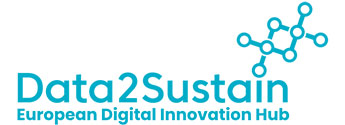Michelangelo, AI & Us

Michelangelo, AI & Us
By Jacqueline Connolly, 4th year Digital Media & Society Student
3 Things you should know about AI before it’s too late
Every day articles on recent developments in Artificial Intelligence (AI) appear in specialist magazines and the technology sections of the mainstream media. Yet if I, as a final year student in a BSc Hons in Digital Media & Society find it difficult to navigate, what hope then does a non ‘techy’ person have? Vast amounts of money are invested in an area that will ultimately impact all of us one way or another. In fact, it’s already begun. The following is a very brief and some will say overly simple explanation, but the hope is to create engagement in this increasing relevant, and increasingly unnerving, topic.
Though philosophical musings on AI go back to ancient Greece, the discipline is generally accepted to have its real beginnings in the mid-20th century. But even those intent on explaining AI in its simplest terms admit that it is something of a minefield. As Tom Morisse points out writing in Fabernovel in February of this year, there was never a standardized globally accepted definition for AI. But whether definitions are essentialist i.e. a machine that can think and/or act like human, or analytical, the crux would seem to be centred on figuring out if intelligence and intelligence simulation are the same thing or not. Because for the last thirty years machines have been coded ‘bottom-up’ which means that they, the machines, can learn from their successes and mistakes.

Though we may still be decades away from flying cars and Bladerunnerscenarios, be aware that you are probably already familiar to an AI application. According to Warren Knight writing in business2community in June of this year approximately one third of the world’s population is using Social Media. AI is how the information on these applications is being monetised. For example, a facial recognition tool is currently being used that identifies and makes it easier to tag a person in a picture inside Facebook. Once you’ve been tagged five times, you picture stays on the Internet forever.
3 Ways you can be smarter about your interactions with AI:
- YOU’RE IT: If you’re using a service and are not paying for it, then YOU ARE THE PRODUCT. Everything you share online has the potential to be monetised and so will be scrutinised.
- FOREVER IS FOREVER: You may evolve, you may change, you may want to leave your past behind you, but the Internet is an unforgiving medium that never forgets.
- PAY ATTENTION: So, you know what your Social Media apps do, but educate yourself on how they work and why they want what they want. Read the small print!
So perhaps this makes the above title clearer. Despite all his magnificent achievements the artist referenced proclaimed he was “still learning”; as it would seem the machine is following suit, it would be in our best interests if we did the same.










Recent Comments